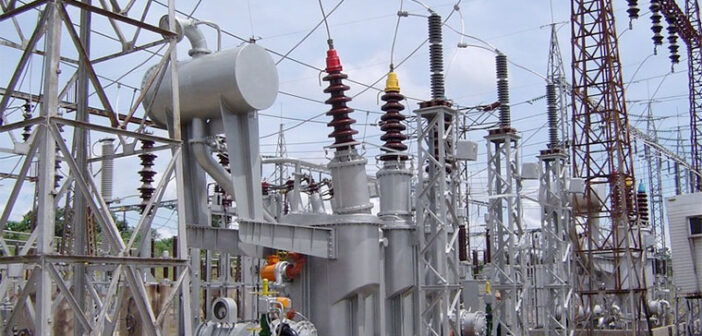The Electricity Regulatory Authority (ERA) has issued a set of Standardized Complaints Handling Guidelines for licensed electricity distributors, as one of the measures to effectively handle complaints from consumers.
According to officials at ERA, the Complaints Handling Guidelines are designed to set a standard for Licensees to handle complaints in relation to their obligations under the Electricity Act and relevant Regulations. These Guidelines provide for best practice in complaints handling among Licensees.
As such, the main purpose of these Guidelines, which were sanctioned by Eng. Ziria Tibalwa Waako, Executive Director, ERA, is to standardize complaints handling mechanisms across all Licensees.
The Guidelines are to help suppliers streamline complaints handling mechanisms to ensure efficiency, effectiveness, objectivity, fairness, consistency and transparency.
The main objectives of these Guidelines are to among others enable the distributors (Licensees) to do the following:
a) Deliver customer satisfaction;
b) Improve complaints handling with emphasis on efficiency, effectiveness, objectivity, fairness, consistency and transparency; and,
c) Continuously review and evaluate their complaints handling processes with the aim of improving customer satisfaction.
The Guidelines will also enable ERA to:
a) Establish a standardized Complaints Management System across all Licensees.
b) Monitor the trend of Complaints registered with Licensees, with the aim of enforcing consumer protection.
The Guidelines which were enacted in 2016 and revised in 2021, are developed pursuant to section 10 (i) of the Electricity Act 1999, Cap 145, which mandates ERA to develop and enforce performance standards for the generation, transmission and distribution of electricity, and Section 10 (j) of the Act, which requires ERA to develop uniform Electricity Industry standards and codes of conduct.
Additionally, Section 10(q) authorizes ERA to approve codes of conduct in respect of the operation of transmission and distribution systems.
As result of this mandate, ERA has therefore developed these Guidelines to set uniform standards for Licensees in complaints handling.
These Guidelines, which came into force in April 2021, may be cited as the ‘Standardized Complaints Handling Guidelines for the Electricity Supply Industry 2021, and apply to all Licensed Electricity Distribution Companies in accordance with the Electricity Act.
Procedure For Complaints Handling
The guidelines establish a standard complaint handling procedure for licensed companies, which include the following;
A Licensee must have in place at all times a Complaints Handling Procedures approved by the Authority.
Each Licensee must comply with its Complaints Handling Procedures in relation to each Complaint received.
Each Licensee’s Complaints Handling Procedures must:
a) Be in plain and understandable language;
b) Allow for Complaints to be made through various Channels of Communication;
c) Allow for Complaints to be progressed through each stage of the Complaints Handling Process orally (by telephone or in person at the Licensee’s business premises), SMS or in writing (email, letters and social media);
d) Describe the steps which the Licensee will take with a view to investigate and resolve a complaint and the likely timescales for each of those steps. These timescales must be in accordance with the Electricity Act and supporting regulations.
e) Provide for an internal review of an unresolved Complaint where a Complainant is dissatisfied with the handling of that Complaint.
f) Describe the Complainant’s right to refer a Complaint to an alternative redress scheme if they are dissatisfied with the resolution:
i) On and from the point at which the Licensee receives a Complaint; and, ii. After the Licensee has resolved the Complaint.
g) Inform Complainants of the names and contact details of the Electricity Regulatory Authority and / or the Tribunal in cases where Complainants are dissatisfied with the solution arrived at by the Licensee; and,
h) Offer the Complainant:
An apology where necessary;
An explanation;
iii. The appropriate remedial action to be taken by the Licensee; and,
- The award of compensation in accordance with the Electricity Act and relevant Regulations.
To streamline the procedure, Licensees must include in their Complaints Handling Procedures, as a remedy, the award of compensation to Consumers, in appropriate cases, where a Consumer has been adversely affected by a failure of that Licensee to comply with its obligations under the Electricity Act, 1999, relevant Regulations, Quality of Service Standards and the License.
Recording Complaints
The Guidelines also task licensees to recording complaints upon receiving them, with emphasis on the following details:
a) The date that the Complaint was received;
b) The channel of communication used to lodge the Complaint;
c) The identity and contact details of the Complainant or on whose behalf the Complaint is lodged;
d) The area of residence of the Complainant;
e) A summary of the Complaint;
f) A summary of any advice given or action taken or agreed upon in relation to the Complaint;
g) Whether the Complaint has been resolved and the basis for resolution.
h) In cases of unresolved Complaints, the Licensee must record the steps taken to handle the Complaint and upon resolution, the time taken to resolve the Complaint and the solution offered; and,
i) A copy of the record must be given to the Complainant.
After doing the above, the Licensee must send a Complainant a written notice informing them of all the above and directing them to a redress scheme in case they are not satisfied with the way their complaint was handled.
For record-keeping and follow-up purposes, each Licensee must:
(a) Receive, handle and process Complaints in an efficient and timely manner; and,
(b) Allocate and maintain such level of resources as may reasonably be required to enable that Licensee to receive, handle and process Complaints in an efficient and timely manner and in accordance with these Guidelines.
Where a Complainant claims to have lodged a Complaint in respect of a matter but it is not possible to identify the Complaint, the Licensee must record the fact that it is unable to trace the Complaint.
To ensure transparency, Licensees must publish quarterly Complaints Reports at a prominent location on their website, such that the information can easily be accessed by ERA and the complaints.
Suppliers are warned that failure to strictly adhere to the above guidelines will attract punitive measures from ERA that may include fines, revocation of the license or both.



